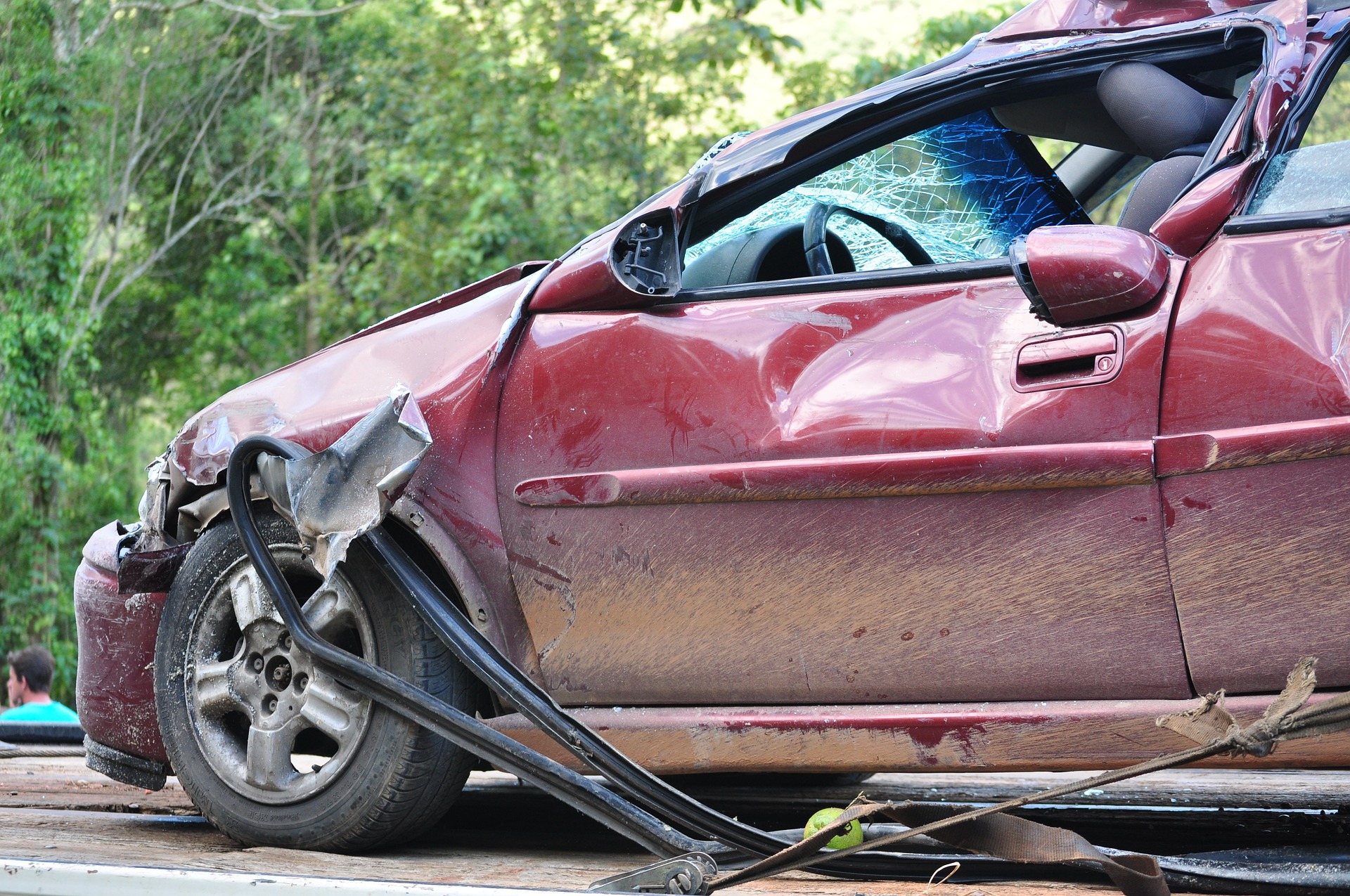If you’ve been involved in a car accident, you may be wondering how much compensation you can expect to receive for your injuries and damages. You may have medical bills, lost wages, pain and suffering, and other losses that affect your quality of life. How can you make sure you get a fair and complete settlement for your claim?
The answer is not simple. Every car accident case is different, and the amount of compensation you can receive depends on many factors, such as:
- The severity and extent of your injuries
- The impact of the accident on your physical and mental health
- The cost of your current and future medical treatment
- The amount of income you lost or will lose due to the accident
- The degree of fault of the other driver or drivers involved
- The insurance coverage of the parties involved
- The state laws that apply to your case
- The strength of your evidence and legal representation
In this article, we will explain how these factors affect your car accident settlement amount, and provide some tips on how to maximize your recovery. We will also share some examples of typical car accident settlement amounts based on real cases.
What Is a Car Accident Settlement?
A car accident settlement is an agreement between you and the insurance company of the person who caused the accident (or your own insurance company if you live in a no-fault state). In exchange for a lump sum payment, you agree to release the other party from any further liability for your claim.
A car accident settlement can be reached at any point before or during a lawsuit. Most car accident cases are settled out of court, without going to trial. This can save you time, money, and stress, and allow you to receive your compensation faster.
However, sometimes a settlement offer may not be fair or adequate to cover all your losses. In that case, you may need to file a lawsuit and take your case to court. A jury or a judge will then decide how much compensation you deserve.
How Is a Car Accident Settlement Calculated?
There is no fixed formula for calculating a car accident settlement amount. However, a general rule of thumb is to add up all your economic damages (such as medical bills and lost wages) and multiply them by a number between 1.5 and 5, depending on the severity of your non-economic damages (such as pain and suffering and emotional distress).
For example, if you have $10,000 in economic damages and $5,000 in non-economic damages, you may multiply them by 3 and get a settlement amount of $45,000.
This method is not precise or accurate, but it can give you a ballpark estimate of what your claim may be worth. However, you should also consider other factors that may increase or decrease your settlement amount, such as:
-
The degree of fault:
If you live in an at-fault state, the amount of compensation you can receive may be reduced by the percentage of fault you share for the accident. For example, if you are found to be 20% at fault for the accident, your settlement amount may be reduced by 20%. Some states have a comparative negligence rule, which means you can still recover some compensation even if you are more than 50% at fault. Other states have a contributory negligence rule, which means you cannot recover any compensation if you are even 1% at fault.
-
The Insurance coverage:
The amount of compensation you can receive may also depend on the insurance coverage of the parties involved. If the other driver has insufficient or no insurance, you may not be able to recover the full amount of your damages from them. In that case, you may need to file a claim with your own insurance company under your uninsured/underinsured motorist (UM/UIM) coverage, if you have it. However, your own insurance company may also try to limit or deny your claim.
-
The state laws:
The laws that apply to your case may also affect your settlement amount. For example, some states have caps or limits on how much compensation you can receive for certain types of damages, such as pain and suffering or punitive damages. Some states also have no-fault laws, which means that regardless of who caused the accident, you must file a claim with your own insurance company for your personal injury protection (PIP) benefits. These benefits typically cover only a portion of your medical expenses and lost wages, but not your pain and suffering or other damages.
-
The strength of your evidence and legal representation:
The amount of compensation you can receive may also depend on how well you can prove your claim. You will need to gather and present evidence to support your case, such as medical records, police reports, witness statements, photos, videos, and expert opinions. You will also need to negotiate with the insurance company or the other party’s lawyer to reach a fair settlement. Having a skilled and experienced car accident lawyer on your side can make a big difference in the outcome of your case.
How to Maximize Your Car Accident Settlement
If you want to get the most compensation possible for your car accident claim, you should follow these steps:
-
Seek medical attention as soon as possible:
Your health and safety should be your top priority after a car accident. You should seek medical attention as soon as possible, even if you think your injuries are minor or you feel fine. Some injuries may not show symptoms right away, but they can worsen over time if left untreated. Getting medical attention will also help you document your injuries and link them to the accident.
-
Report the accident to the police and your insurance company:
You should also report the accident to the police and your insurance company as soon as possible. The police will create an official report that can serve as evidence for your claim. Your insurance company will also need to know about the accident to process your claim. However, you should be careful about what you say to the insurance adjuster or the other party’s insurance company. Do not admit fault, minimize your injuries, or accept a settlement offer without consulting a lawyer first.
-
Gather and preserve evidence:
You should also gather and preserve as much evidence as possible to support your claim. This may include taking photos or videos of the accident scene, your injuries, and your vehicle damage; getting contact information from witnesses; obtaining a copy of the police report; keeping receipts of your medical bills and other expenses; and keeping a journal of your pain and suffering and how the accident has affected your life.
-
Hire a car accident lawyer:
One of the best ways to maximize your car accident settlement is to hire a car accident lawyer who can represent your interests and fight for your rights. A car accident lawyer can help you evaluate your case, gather and analyze evidence, negotiate with the insurance company or the other party’s lawyer, file a lawsuit if necessary, and take your case to trial if needed. A car accident lawyer can also advise you on how to avoid common mistakes that can hurt your claim, such as missing deadlines, signing away your rights, or posting about your case on social media.
Car Accident Settlement Examples
To give you an idea of how much compensation you can expect to receive for your car accident claim, here are some examples of typical car accident settlement amounts based on real cases:
-
$16,700 for a rear-end collision with no injuries:
Richard and his wife were stopped at a red light when they were rear-ended by another driver. They did not suffer any injuries, but their car was totaled. They filed a claim with the other driver’s insurance company and received $16,700 for their property damage.
-
$29,700 for a side-impact collision with minor injuries:
Jane’s daughter was injured in a car accident in Texas when another driver ran a red light and hit her car on the side. She suffered whiplash, bruises, and cuts that required medical treatment. She filed a claim with the other driver’s insurance company and received $29,700 for her medical bills, lost wages, pain and suffering, and property damage.
-
$45,000 for a passenger injury in a single-car accident:
John was riding as a passenger in his friend’s car when his friend lost control of the vehicle and crashed into a tree. John suffered a broken arm and a concussion that required surgery and rehabilitation. He filed a claim with his friend’s insurance company and received $45,000 for his medical bills, lost wages, pain and suffering, and property damage.
-
$100,000 for a head-on collision with severe injuries:
Mary was driving on a highway when another driver crossed the center line and hit her head-on. She suffered multiple fractures, internal bleeding, organ damage, and brain injury that required multiple surgeries and long-term care. She filed a lawsuit against the other driver and received $100,000 for her medical bills, lost wages, pain and suffering, and property damage.
-
$300,000 for wrongful death in a drunk driving accident:
David was killed in a car accident when a drunk driver ran a stop sign and hit his car. His wife and two children filed a wrongful death lawsuit against the drunk driver and his insurance company. They received $300,000 for their economic and non-economic damages, including funeral expenses, loss of income, loss of companionship, and emotional distress.
These are just some examples of typical car accident settlement amounts. However, they do not guarantee or predict the outcome of your case. Your case may be worth more or less than these examples, depending on your specific situation and circumstances.

How to Negotiate a Car Accident Settlement
Negotiating a car accident settlement can be a challenging and stressful process. You may have to deal with multiple parties, such as the insurance adjuster, the other driver’s lawyer, or even your own insurance company. You may also face pressure to accept a lowball offer or to settle quickly.
To negotiate a car accident settlement successfully, you should follow these tips:
-
Do not accept the first offer:
The first offer you receive from the insurance company is likely to be much lower than what your claim is worth. The insurance adjuster may try to convince you that this is the best offer you can get, or that you have to accept it within a certain time frame. Do not fall for these tactics. You have the right to reject any offer that does not meet your expectations and demand a higher amount.
-
Know your minimum settlement amount:
Before you enter into any negotiations, you should have a clear idea of what your claim is worth and what is the minimum amount you are willing to accept. This will help you avoid settling for less than you deserve or being swayed by emotional factors. However, you should not reveal your minimum settlement amount to the insurance adjuster or the other party’s lawyer. Instead, you should start with a higher amount and work your way down until you reach a mutually acceptable agreement.
-
Provide evidence and documentation:
To support your claim and justify your settlement amount, you should provide evidence and documentation of your damages and losses. This may include medical records, bills, receipts, pay stubs, photos, videos, witness statements, police reports, expert opinions, and any other relevant information. You should also keep track of all your communication with the insurance company or the other party’s lawyer and make copies of everything you send or receive.
-
Be polite but firm:
When negotiating a car accident settlement, you should be polite but firm with the insurance adjuster or the other party’s lawyer. You should avoid being rude, aggressive, or emotional, as this may damage your relationship and hurt your chances of reaching a favorable outcome. However, you should also avoid being too friendly, cooperative, or apologetic, as this may signal weakness or uncertainty. You should stick to the facts and assert your rights and interests confidently.
-
Hire a car accident lawyer:
Negotiating a car accident settlement can be complex and overwhelming, especially if you are dealing with serious injuries or multiple parties. Hiring a car accident lawyer can make the process easier and more effective. A car accident lawyer can help you evaluate your case, gather and present evidence, negotiate with the insurance company or the other party’s lawyer, file a lawsuit if necessary, and take your case to trial if needed. A car accident lawyer can also protect you from common mistakes that can hurt your claim, such as missing deadlines, signing away your rights, or posting about your case on social media.
Car Accident Settlement Resources
If you need more information or assistance with your car accident settlement, you can check out the following resources:
- Accident.com: This is a website that connects you with local car accident lawyers who can help you with your case. You can get a free consultation and learn about your legal options. You can also find useful articles and guides on car accident topics, such as how to deal with insurance companies, what to do after an accident, and how to file a lawsuit.
- Forbes Advisor: This is a website that provides expert advice and insights on various topics, including legal issues. You can find helpful articles and guides on car accident topics, such as how to negotiate an insurance settlement, how to calculate car accident damages, and how to choose a car accident lawyer.
- FindLaw: This is a website that provides legal information and resources for consumers and businesses. You can find helpful articles and guides on car accident topics, such as car accident settlement basics, car accident laws by state, and car accident FAQs. You can also find a directory of car accident lawyers near you.
Conclusion
A car accident settlement is an agreement between you and the insurance company of the person who caused the accident (or your own insurance company if you live in a no-fault state). In exchange for a lump sum payment, you agree to release the other party from any further liability for your claim.
A car accident settlement can be reached at any point before or during a lawsuit. Most car accident cases are settled out of court, without going to trial. This can save you time, money, and stress, and allow you to receive your compensation faster.
However, sometimes a settlement offer may not be fair or adequate to cover all your losses. In that case, you may need to file a lawsuit and take your case to court. A jury or a judge will then decide how much compensation you deserve.

Compensation
The amount of compensation you can receive for your car accident claim depends on many factors, such as the severity and extent of your injuries, the impact of the accident on your physical and mental health, the cost of your current and future medical treatment, the amount of income you lost or will lose due to the accident, the degree of fault of the other driver or drivers involved, the insurance coverage of the parties involved, the state laws that apply to your case, and the strength of your evidence and legal representation.
To maximize your car accident settlement, you should seek medical attention as soon as possible, report the accident to the police and your insurance company, gather and preserve evidence, hire a car accident lawyer, and negotiate with the insurance company or the other party’s lawyer.
If you need more information or assistance with your car accident settlement, you can check out some of the resources we mentioned above.
We hope this article has helped you understand how much should you receive from your auto accident and how to get it. Remember that this is not legal advice and you should consult a qualified attorney before taking any action. Stay safe and good luck!
